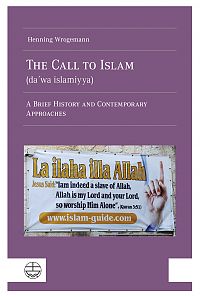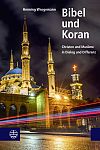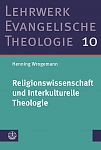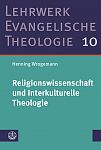A Brief History and Contemporary Approaches
Henning Wrogemann
Today Islam is numerically the second largest religion in the world. Its message is aimed generally at all people and has been addressed to Muslims and non-Muslims alike since the beginning of Islam through the »Call to Islam« (Arabic daʻwa islamiyya). But what exactly does »Call to Islam« mean? After a brief historical sketch of different forms of Daʻwa, this book provides an overview of various Daʻwa theologies of the 20th and 21st centuries as well as of some Daʻwa organizations and different Daʻwa approaches. Finally, the question is raised about the challenges that Daʻwa activities of a conservative or an Islamist Islam pose for liberal and democratic societies.
[Der Ruf zum Islam. Eine kurze Geschichte und zeitgenössische Ansätze]
Der Islam ist gegenwärtig die zahlenmäßig zweitgrößte Religion der Welt. Seine Botschaft richtet sich allgemein an alle Menschen und wird seit Beginn des Islam durch den »Aufruf zum Islam« (arabisch ...
mehr
A Brief History and Contemporary Approaches
Henning Wrogemann
Today Islam is numerically the second largest religion in the world. Its message is aimed generally at all people and has been addressed to Muslims and non-Muslims alike since the beginning of Islam through the »Call to Islam« (Arabic daʻwa islamiyya). But what exactly does »Call to Islam« mean? After a brief historical sketch of different forms of Daʻwa, this book provides an overview of various Daʻwa theologies of the 20th and 21st centuries as well as of some Daʻwa organizations and different Daʻwa approaches. Finally, the question is raised about the challenges that Daʻwa activities of a conservative or an Islamist Islam pose for liberal and democratic societies.
[Der Ruf zum Islam. Eine kurze Geschichte und zeitgenössische Ansätze]
Der Islam ist gegenwärtig die zahlenmäßig zweitgrößte Religion der Welt. Seine Botschaft richtet sich allgemein an alle Menschen und wird seit Beginn des Islam durch den »Aufruf zum Islam« (arabisch dacwa) an Muslime und Nicht-Muslime gleichermaßen ausgerichtet. Aber was genau bedeutet »Ruf zum Islam«? Nach einem kurzen historischen Abriss verschiedener Formen der dacwa bietet dieses Buch einen Überblick zu unterschiedlichen dacwa-Theologien des 20. und 21. Jahrhunderts sowie zu einigen dacwa-Organisationen und verschiedenen dacwa-Ansätzen. Abschließend wird die Frage aufgeworfen, welche Herausforderungen die dacwa-Aktivitäten eines konservativen oder eines islamistischen Islam für liberale und demokratische Gesellschaften mit sich bringen.
Zum Autor
Henning Wrogemann, Dr. theol. habil, born in 1964, holds the chair for Science of Religion and Intercultural Theology at the Protestant University Wuppertal, Germany. He also heads the Institute for Intercultural Theology and Interreligious Studies (IITIS) at the Protestant University Wuppertal (www.iitis.de). His work focuses on intercultural hermeneutics, mission and dialog, interreligious relations and contemporary issues in Islam.
Henning Wrogemann, Dr. theol., Jahrgang 1964, ist Professor für Religionswissenschaft und Interkulturelle Theologie an der Kirchlichen Hochschule Wuppertal und Leiter des Instituts für Interkulturelle Theologie und Interreligiöse Studien (www.iitis.de). Seine Arbeitsschwerpunkte sind Interkulturelle Hermeneutik, Mission und Dialog, Interreligiöse Beziehungen, Gegenwartsfragen im Islam.






